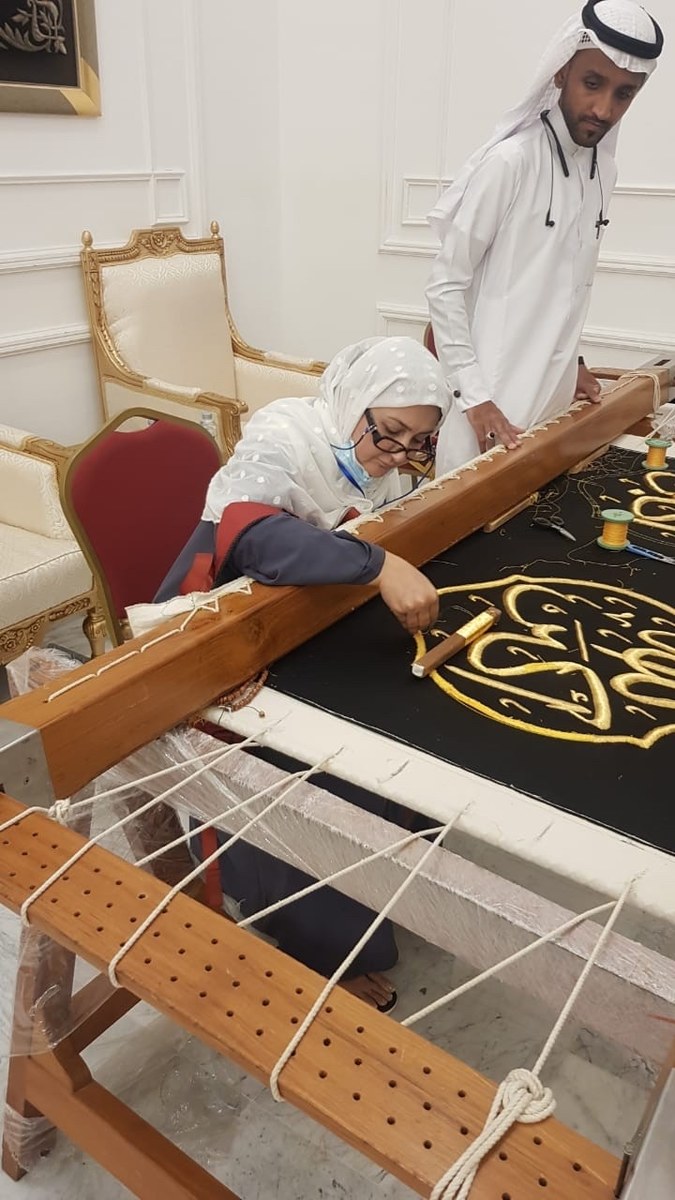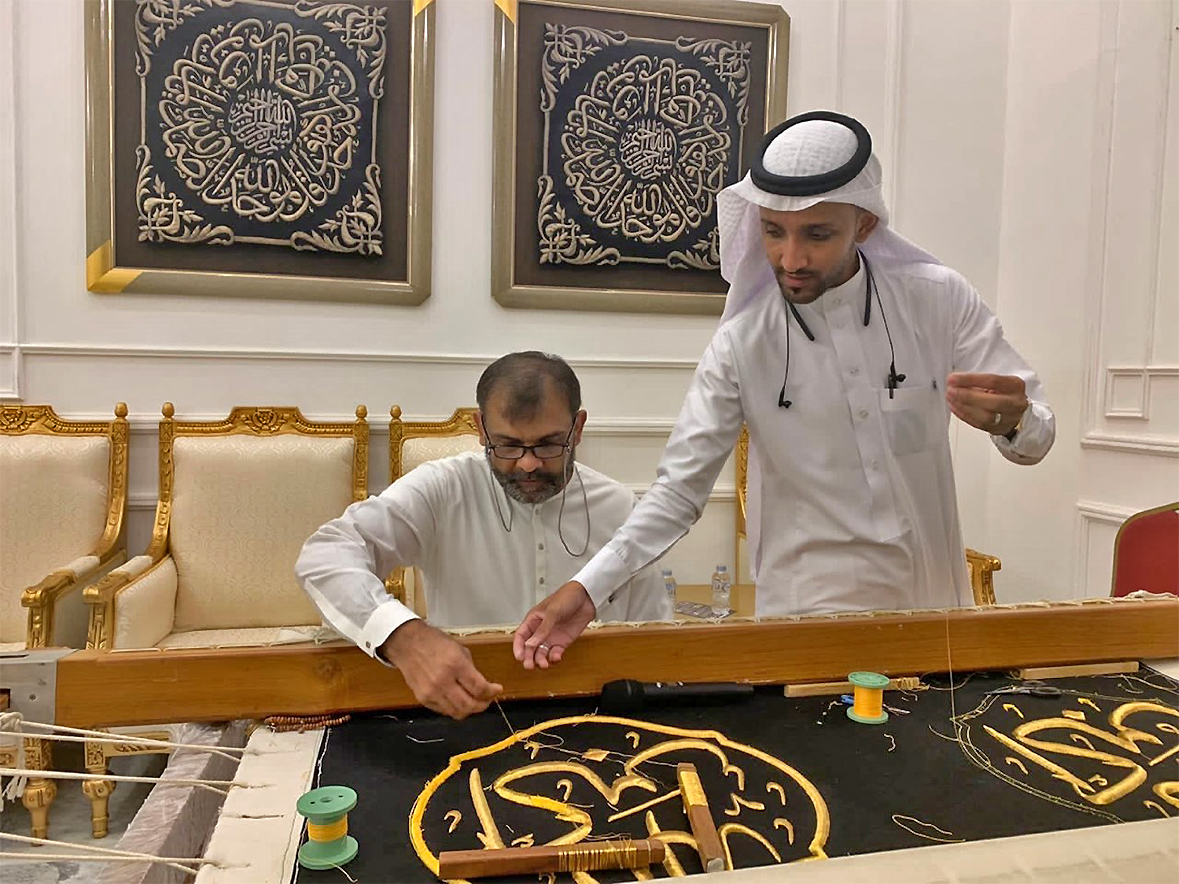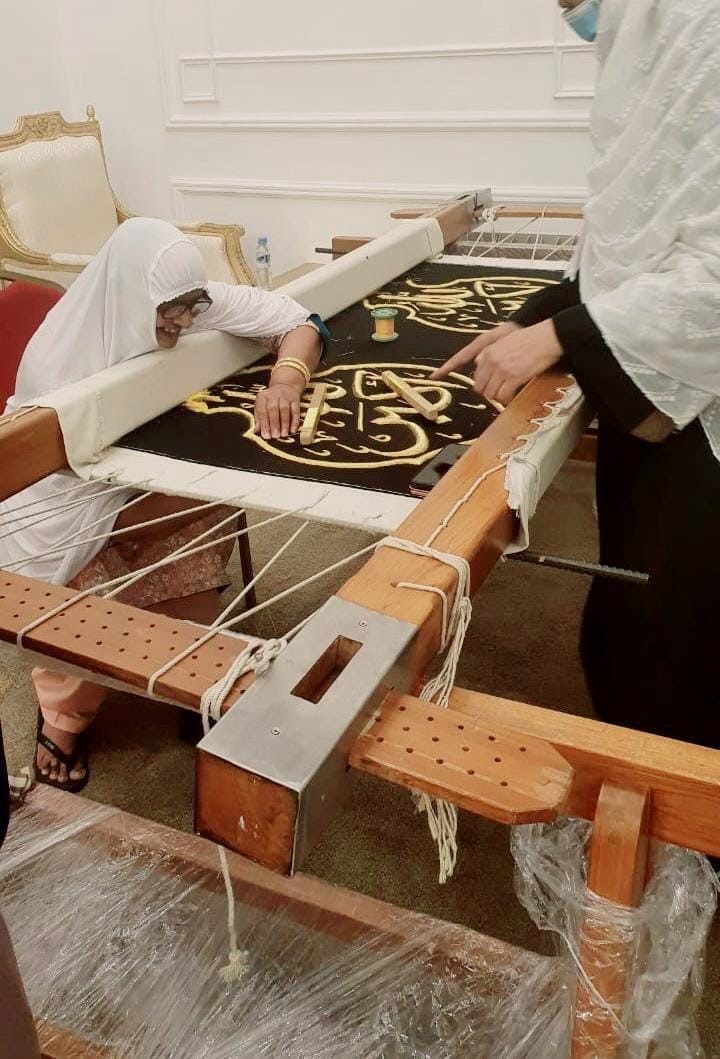ISLAMABAD: Hundreds of Pakistani pilgrims participated in the stitching process of Kiswa, the cover which adorns the cubical structure of Kaaba at the heart of Makkah’s Grand Mosque, during the recent Hajj season, with many of them describing it to be a great privilege.
In a departure from the usual tradition, the Saudi General Presidency for the Two Holy Mosques installed the new Kaaba cover at the beginning of the new Islamic year on July 31.
Previously, it was done on the ninth day of Dhu Al-Hijjah, the last month in the lunar Islamic calendar, while pilgrims performed the most important Hajj ritual by spending their day in Arafat.
The new Kiswa was prepared by nearly 200 Saudi craftsmen who used 850 kilograms of raw silk, 120 kilograms of gold wire and 100 kilograms of silver wire. Hundreds of pilgrims, including Pakistani nationals, also participated in making the cover by putting in a stitch with the gold wire.
“It was like a dream come true,” Sunbul Raza Waqas, who performed Hajj this year, told Arab News from Lahore over the phone. “I still nostalgically think about that moment even after I am back from Makkah.”

A Pakistani pilgrim, Sunbul Raza Waqas, is stitching Kaaba’s cover at the King Abdulaziz Complex in Makkah, Saudi Arabia, on July 5, 2022. (Courtesy: Sunbul Raza Waqas)
Waqas was excited after getting permission to visit the factory where Kiswa was made.
“When the factory official asked me to put in a stitch, I felt as if I was numb,” she continued. “I cannot put my feelings in words. It was amazing and I felt truly blessed.”
Pakistan’s Hajj director in Makkah, Sajid Manzoor Asadi, said hundreds of Pakistani pilgrims visited the Kiswa factory this year and participated in the stitching process.
“The Saudi staff of the factory especially facilitated Pakistani pilgrims and briefed them about the process of making Kiswa,” he told Arab News from Makkah.
Another pilgrim from Islamabad, Ijaz Ahmed, said he was in tears while stitching the new Kaaba cover.
“I was so excited and happy that I could not hold back my tears,” he told Arab News from Madinah, adding it was a once in a lifetime experience.

A Pakistani pilgrim, Alamgir Malik, is stitching Kaaba’s cover at the King Abdulaziz Complex in Makkah, Saudi Arabia, on July 5, 2022. (Courtesy: Alamgir Malik)
Wajid Abbas from Islamabad also described it as a “unique feeling” he had never experienced before.”My hands were shaking and it was difficult for me to breathe properly as I stitched Kiswa,” he recalled.
Speaking to Arab News, Bushra Parveen, a 67-year-old widow from Sialkot who performed Hajj this year, said the opportunity to stitch Kiswa was a “priceless reward” from God.
“I raised my children as a single mother and earned our livelihood through embroidery and stitching,” she said. “Allah gave me the opportunity to stitch the cover of His House [Kaaba] as a priceless reward.”

Pakistani pilgrim, Bushra Parveen, is stitching Kaaba’s cover at the King Abdulaziz Complex in Makkah, Saudi Arabia, on June 15, 2022. (Courtesy: Sajid Manzoor Asadi)




















